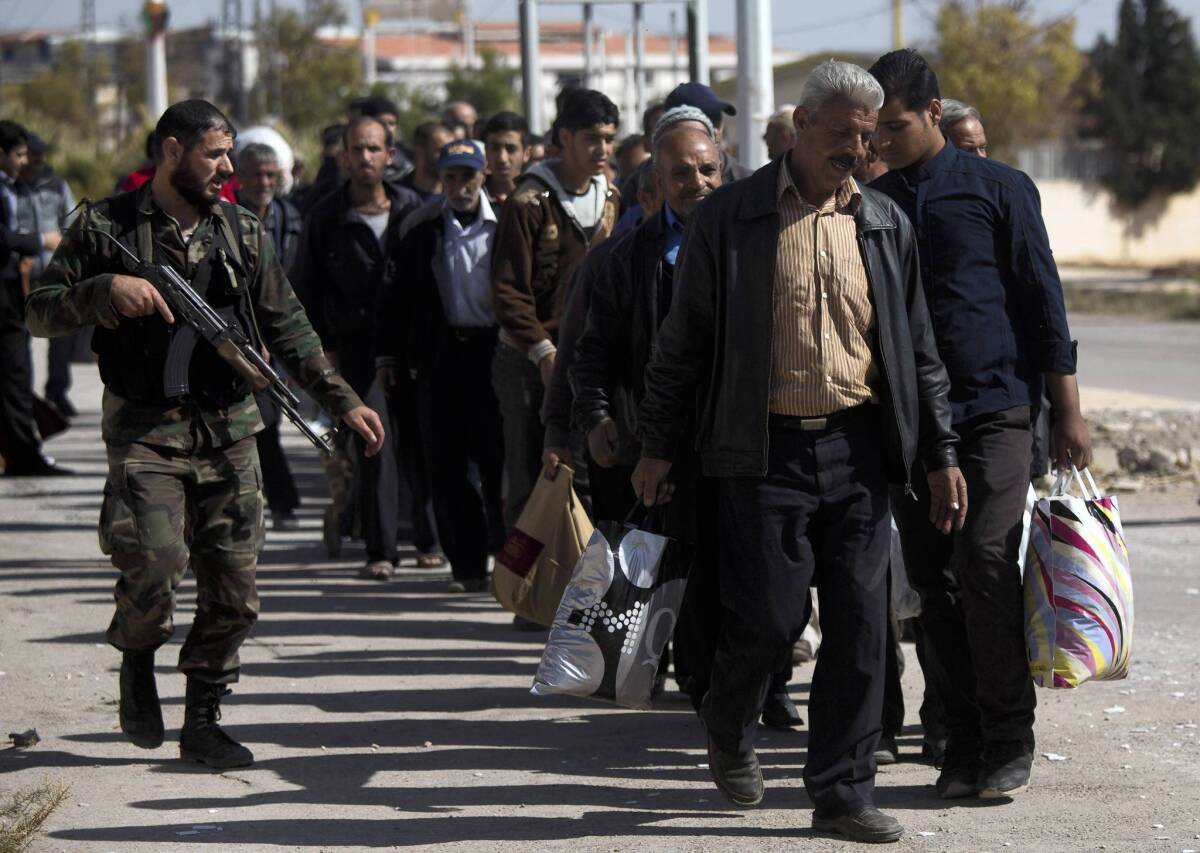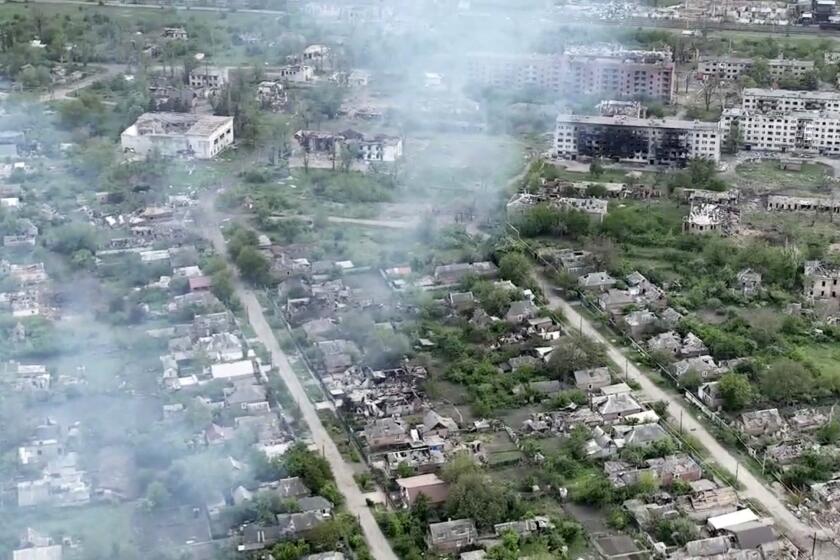Hunger consumes life in suburb of Damascus, Syria

For many months, people in the Damascus suburb of Muadhamiya have arisen with uncertainty: the unknown of whether, or how much, they would eat.
“You wake up in the morning and your only concern is to find something to eat,” Qusai Zakarya, 27, a member of the town’s opposition council, said by Skype. “Perhaps today we won’t find food, or perhaps we will find a handful of vegetables and can make some salad.”
Weighing hunger against the risk of shelling or sniper fire by Syrian government forces, some venture to the town’s outer fields and orchards to forage for vegetables and herbs. They often return with little more than grass and leaves.
Two weeks ago, a 14-year-old boy and two men were killed in the fields, said activist Ahmad Moadamani.
“Sometimes you walk under a fig tree and spot two dried figs,” Zakarya said. “That day feels like a victory day.”
The opposition-held suburb, which once had a population of 15,000, has been under government blockade for nearly a year, preventing food, medicine and other aid from reaching residents who mostly have supported the rebels seeking to overthrow the government of longtime autocrat Bashar Assad. United Nations inspectors say Muadhamiya was also the site of a surface-to-surface missile attack in August in which the lethal nerve agent sarin was used.
With the weather turning cold, more than 1,500 people were allowed to leave the town two weeks ago under a deal worked out through intermediaries. But an effort to evacuate 2,000 more a few days later was aborted when civilians came under shelling, activists said.
On Tuesday, at least several hundred civilians were allowed to leave Muadhamiya, where rebel forces remain under siege, according to various reports. Though activists in the town put the number evacuated at about 800, the Associated Press said nearly 2,000 left, and a BBC correspondent in the area said thousands of hungry people had been allowed to depart by bus for shelters.
A government official told the AP that no civilians remained in Muadhamiya. But activists in the town say about 8,000 are still there.
On Friday, in a briefing to the U.N. Security Council, Valerie Amos, the U.N.’s chief for humanitarian and relief issues, urged member nations of the council to exert more pressure on both the Syrian government and the opposition to give relief workers access to blockaded areas in the war-torn country.
“This is a race against time,” Amos said. “Each day that passes without the parties upholding their most basic obligations results in more lives lost, more people displaced, more people denied access to the most basic services. As we deliberate, people continue to die unnecessarily.”
Bread is a distant memory in Muadhamiya, which has been without flour for 11 months. When international inspectors visited in the wake of the August chemical attack, one of the first things residents asked was, “Did you at least bring a loaf of bread?”
Other than any edible items that might be found on the ground, townspeople’s one meal a day consists of little more than two dozen olives and boiled water with spices, cooked over a wood fire because electricity has been cut and little fuel remains. The olives, the last of the food reserves saved in most kitchen cupboards, are dwindling as well.
“The olives won’t last much longer, and we don’t have the ability to harvest more,” Zakarya said. “And there is no hope for other food to come in soon.”
People time the daily meal halfway through their waking hours to tide them over until the next day, activist Adnan Sheik said by Skype. He said he had heard of people eating cats or dogs after Syrian clerics issued an edict making it permissible for those facing extreme hunger.
But even stray cats are scarce here. Few living things, human or animal, are seen on the streets anymore, given the frequent shellings and the need to conserve strength. Civilians hide day and night in basements or underground bunkers.
Sheik, who was already slender, said he had lost more than 20 pounds in the last two months. Others have lost even more.
“The hunger here is like cancer; it just keeps growing and growing,” Zakarya said. “You look into people’s faces and all you see is exhaustion.”
Medicines for injuries and illnesses, some of them caused by malnutrition, have also been unavailable. In neighboring Dariya, also under government siege for almost a year, a 23-year-old man injured by shrapnel reportedly died Monday when the nutrient serum keeping him alive ran out.
In Muadhamiya, a water main that was the sole source of clean water was recently shelled, said activist Moadamani. Now people are dependent on well water, even though it’s contaminated.
“The person who is eating grass isn’t going to draw the line at drinking dirty water,” he said.
More to Read
Start your day right
Sign up for Essential California for news, features and recommendations from the L.A. Times and beyond in your inbox six days a week.
You may occasionally receive promotional content from the Los Angeles Times.







